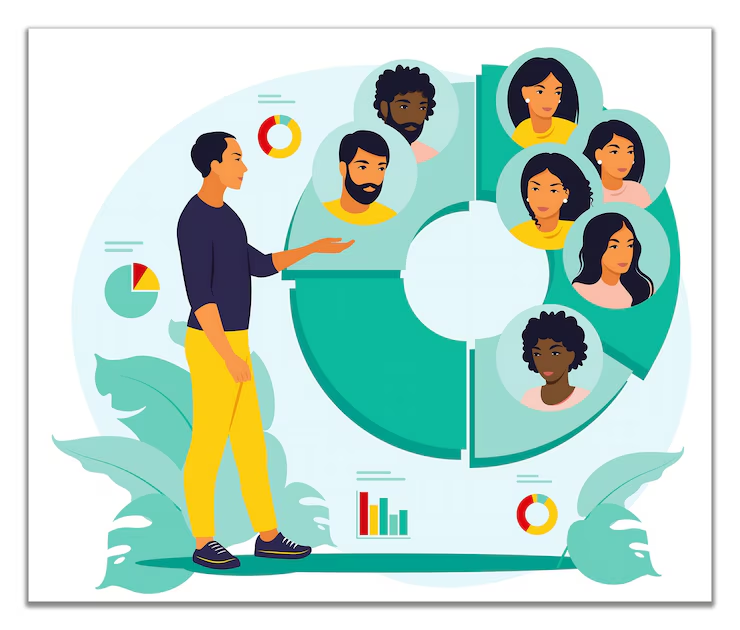Physical Address
304 North Cardinal St.
Dorchester Center, MA 02124
Physical Address
304 North Cardinal St.
Dorchester Center, MA 02124
As someone who’s been in the affiliate marketing game for over seven years, I get asked all the time: Is affiliate marketing still worth the time and effort in 2025?
The truth is, the landscape has changed dramatically. In this guide, I’ll break down what’s shifting in the industry, share realistic insights on setting expectations, reveal common pitfalls to avoid, and give you proven strategies to increase your chances of building sustainable affiliate income based on my own hands-on experience.
By the end, you’ll be able to reassess what you thought you knew about affiliate marketing in 2025 and decide whether to build your project entirely around it or diversify your income streams for long-term security.
Affiliate marketing is absolutely still worth it in 2025. Over the past seven years, I’ve generated seven figures in affiliate commissions. One standout example is my partnership with Jasper, which alone brought in nearly $100,000 in commissions.

Affiliate marketing is still worth it if you follow the right strategy, head in the right direction, and invest both time and patience.
With affiliates now driving over 15% of all digital media revenue, the question is: What does it really take to succeed? Let’s dive in.
To give you a clearer picture, here’s a breakdown of affiliate marketing’s key pros and cons. Use this list to decide for yourself whether it’s truly worth pursuing.
| Pros | Cons |
|---|
| Potential for high profits | No control over competition |
| Low startup investment | Earnings are never guaranteed |
| Can be an extra income stream alongside your job | Freelancing isn’t suited for everyone |
| Highly flexible and convenient |
| Opportunity for passive income |
| Earnings directly tied to your performance |
Many people view affiliate marketing as an easy way to make money. While joining most affiliate programs is relatively simple, actually generating income especially substantial profits requires far more than just grabbing a link and logging into a dashboard. It takes consistent time, effort, and dedication.
That said, when approached the right way, affiliate marketing can be a powerful revenue stream. Below, we’ll explore situations where it can be especially beneficial for you. We’ll also share a selection of affiliate marketing courses designed to teach you everything you need to know to start and succeed.
You don’t need to use a product for years to earn your audience’s trust but you do need to deeply understand its value and relevance. That means investing time in thorough research so you can speak with confidence and clarity about how it works and why it matters.
When you recommend a product, your audience should feel assured that it can genuinely help them with real, hands-on tasks. Avoid promoting anything you haven’t fully understood or tested, as incomplete knowledge can damage credibility. Consistently providing well-informed, valuable recommendations will strengthen trust and foster long-term loyalty.

Start by choosing a niche where you can establish genuine authority and trust. The foundation of an engaged audience lies in delivering honest reviews even when you have an affiliate partnership with the brand.
While brand affiliations can sometimes create pressure, a strong, well-planned content strategy will keep you balanced. Aim to include not only positive reviews but also in-depth tutorials, actionable tips, and problem-solving guides that provide real value to your audience.
Building a genuine customer base that generates consistent, long-term sales is essential for lasting success in affiliate marketing. Many affiliates work with agencies to promote products, often positioning themselves as consultants turning the agency into a client. In these cases, your role is to recommend products that deliver real value to the agency’s customers, much like how content writers create blogs that genuinely help their readers.
One of the biggest mistakes affiliate marketers make is sacrificing loyal, long-term clients for short-term gains. While quick projects may bring immediate income, long-term partnerships are usually far more profitable and sustainable.
To maintain your clients’ trust and loyalty, focus on recommending products that tangibly improve their sales. Once you consistently deliver profitable results, your clients will view you as a trusted, go-to expert they can rely on for the long haul.
At its core, affiliate marketing is about connecting your audience or clients with the right products. If you can’t deliver what they truly need, your chances of succeeding in this field are slim.
Before you begin your affiliate marketing journey, it’s crucial to identify a niche you’re genuinely passionate about. Once you’ve found your area of interest, research whether the products you plan to promote are actually in demand because passion alone isn’t enough without market demand to back it up.

Success in affiliate marketing comes from balancing two factors: choosing products that are in high demand and focusing on a niche you genuinely enjoy.
Once you’ve built a loyal audience or client base especially if you work with agencies you can implement effective affiliate marketing strategies. These can include email marketing, social media campaigns, client calls, and webinars, all of which can help strengthen relationships and drive consistent sales.
Whether you’re targeting a specific audience or serving a client base, your top priority should always be delivering genuine value. Providing value demonstrates that you care about your customers’ needs and are committed to offering them the best solutions.
While boosting traffic and rankings is important, positioning yourself as a value-driven partner will have a far greater impact. This approach not only builds trust but also strengthens your reputation across every aspect of affiliate marketing.

For example, once people recognize that you consistently bring value to their business, you’ll naturally become their go-to resource. As word spreads, more individuals and companies will want to join your network and collaborate with you to grow their own businesses.
EPC (Earnings Per Click) is a key metric that shows how much you earn per click for a specific product. Tracking this data helps you determine whether a product is truly worth promoting.
If you notice certain products with a high EPC, it’s wise to focus on them and explore the niche they belong to. This targeted approach can significantly boost your profits and help you grow as an affiliate marketer.
EPC insights benefit both audience-based and client-based marketers. Audience-focused affiliates can use this data to drive traffic and improve rankings through strategic keywords, while client-focused affiliates can research market demand and recommend the most profitable products to their clients.
When a company launches a new product, it often sets up an affiliate program to help promote it and boost sales. This can be done by creating an in-house program or by partnering with an affiliate network like ShareASale.
An affiliate network acts as the middleman between the company and the affiliate marketer. To get started, a marketer joins the network, selects a product to promote, and generates a unique affiliate link.
Each affiliate link contains a special ID that identifies the marketer for that specific product. When someone clicks the link and makes a purchase, the marketer earns a commission from the sale.
That’s the basic process of affiliate marketing simple in concept, but profitable only if you know how to effectively promote products and drive targeted sales.
To launch your affiliate marketing business, you’ll need to follow four key steps each explained in detail below.
The first step in starting your affiliate marketing journey is deciding which platform you’ll use to build your audience. Different marketers choose different channels and strategies to promote products, so it’s important to pick the one that best suits your skills and niche.
Here are some popular options:
When choosing a niche, focus on one you know well. This familiarity allows you to connect more effectively with your audience and create authentic, valuable content that builds trust.
It also helps you identify the right products to promote ones that not only fit your niche but are also likely to resonate with your audience and drive sales.
To build credibility as an affiliate marketer, focus on promoting trustworthy products and verifying their actual value before recommending them. Choosing products solely for high commissions can quickly damage your audience’s trust.
If you’re unsure where to find quality products, explore reputable affiliate networks like ShareASale, ClickBank, CJ Affiliate, FlexOffers, and others that offer a wide range of vetted options.
Many affiliate platforms make it easy to discover the right programs to join, but your top priority should be finding ones that offer products your audience will genuinely connect with.
Ask yourself: Will my audience actually want this product? Make sure it’s not only relevant to their needs but also fits naturally within your niche. You can explore some of the highest-paying affiliate programs in this post.
Common Ways Affiliate Marketers Earn Money Online
In short: Affiliate marketers have multiple ways to monetize their content, influence, or marketing skills. These performance-based models reward conversions, making affiliate marketing a flexible and scalable income stream.
Yes, affiliate marketing remains profitable in 2025. To succeed, you need products your audience genuinely wants, high-quality content that ranks in search engines, and an engaged, loyal following.
Focus on creating content that addresses your audience’s search intent while offering them the best possible deals on relevant products. Keep your content fresh by updating it every 15–30 days with new offers and information this not only maintains search engine relevance but also keeps your audience coming back.
Avoid promoting products solely for high commissions if they don’t resonate with your readers. Instead, choose items your audience loves and is ready to purchase. Understand their needs, research their search behavior, and build a long-term strategy around delivering real value.
I’ve already explained why affiliate marketing can still be worth it today but there are certain situations where I wouldn’t recommend pursuing it.
Affiliate marketing may not be for you if:
While there are many factors to consider before stepping into affiliate marketing, avoid forming opinions based on biased or misleading information online.
Affiliate marketing remains worthwhile for those willing to put in consistent effort, patience, and dedication. The key is to thoroughly understand the products you plan to recommend so you can promote them with confidence and credibility.
Bottom line: affiliate marketing is far from dead. If this guide has helped you see its true potential, be sure to check back for more insights and resources on building a successful affiliate business.